life in japan
Emotions can range from being ready to take on the world to “Man, I sure wish I was drunk right now.”
Weeaboos often get a bad rap for being out of touch with reality and over-idealising Japan. But what do ordinary Japanese people think of them?
Check out these drowsy drivers catching 40 winks during a typical day in Japan’s busiest city.
Beyond silly mistakes like wearing toilet slippers on tatami or forgetting to add “san” to someone’s name, what other things do foreigners unknowingly do to reduce their chances of living happily in Japan?
‘Tis the season for grumbling about cultural differences, but does it have to be?
A while back, we had some fun talking about five of the more noteworthy types of foreigners you’ll meet in Japan, based upon observations drawn from our time spent working and living here in the Land of the Rising Sun. Whether you’re a Plastic Sensei, Hateimus Japanicus, Secret Ninja, Bubble Dweller or Kid in a Candy Store (or indeed, all of these at different times), we reckon there’s probably quite a lot foreign residents can find to nod their heads at when considering each of those five extreme types.
But what about the flip side of the coin? Spend enough time as a foreigner in a country like Japan—a place that’s 98.5% ethnically Japanese—and you’ll be sure to notice that Japanese people will approach you, the foreigner, in a number of different ways. Today we’d like to share our thoughts on six kinds of Japanese people foreigners might meet during their time in Japan. See how many of them you’ve come across during your time traveling or living in the country!
As we’ve seen, Japan is really psyched about Halloween. The holiday has been steadily growing in popularity for the last decade, and with October 31 falling on a Saturday in 2015, this year’s celebration is likely to be Japan’s liveliest Halloween ever.
But how did Halloween become Japan’s second favorite foreign holiday, right after Christmas? And also, is Japan staying true to the spirit of the holiday, or is forcefully pressing it into its own domestic mold, as the country is wont to do with cultural imports?
It’s no secret that Japan may be headed for a bit of a labor crunch, as the population ages and many older workers reach retirement age with fewer young up-and-comers to replace them. And, while the Japanese government seems reluctant to take measures to replenish the shrinking workforce with foreign laborers, non-Japanese workers are nevertheless entering Japanese corporations and workplaces in record numbers.
But Japanese offices are also notorious for their long hours, slow pace of advancement, and frequent, long meetings. Traditional Japanese companies seem stuck in an old-school work culture even as companies in the rest of the world offer increasingly progressive work-life balance programs, workplace perks, and office hours.
With this stark contrast in mind, our Japanese sister site tracked down seven non-Japanese workers to get their for-realsies impressions of what it’s actually like to work at a Japanese company.
According to statistic, anywhere from one to two million people visit Japan per month, and more foreigners are working and living here than ever before. That’s a lot of people hopping a plane over, and especially if yours is a one-way flight, preparing yourself mentally before you arrive in Japan is just as important as the physical things you pack with you in your suitcase.
Think you’ve done all your research when it comes to the Land of the Rising Sun? Check out this video on five things you should know before making the big move.
When visiting or moving to another country, usually eating local food and going sightseeing is par for the course, but sometimes just doing everyday things the local way can be rewarding. After all, if you’re already taking the plunge to change your surroundings, it’s the perfect time to re-invent yourself, too.
This is exactly how one Australian felt after a trip to a Japanese hair salon with friends, which he learned was a surprisingly different experience than getting a shampoo and cut back home.
Seeing as how the entire English-language RocketNews24 team is composed of people who at some point moved to Japan, we’re pretty big proponents of living here. One unpleasant part of the package, though, it that since you can’t claim the whole country as your residence, living in Japan means finding an apartment in Japan, which is generally agreed upon as one of the least enjoyable parts of the expat experience.
Why? For the following four reasons.
Back when I was still living in the UK, I would have never dreamed of spending an entire afternoon working on my laptop in a cafe. Places like Starbucks or homegrown coffee chain Costa are places to go, pay slightly too much for caffeinated beverages, leaf through a book or newspaper, then be on your way. They’re not for doing your homework or earning a living.
Thanks to the birth of WiFi and ultra-light laptop computers, however, the sight of people commandeering tables for hours on end is no longer such a rarity, and I, it has to be said, am one of them. Which is where I witnessed an unusual little episode involving a grumpy old man with a comb-over, his quiet, sweater vest-wearing friend, and a young woman who may or may not have been a matcha-drinking guardian angel.
After living here for the best part of eight years (five in the country, the rest in the capital) I’ve come to realise that for all the talk of Japan being kind of an oddball nation, it’s no weirder than anywhere else, and perhaps the only reason people here sometimes come across as so quirky is because the rest of the time they mind their own business and just get on with things quietly.
One thing that never fails to astound me when I go out at night in Tokyo, though, is the almost superhuman way in which some businessmen – despite looking like they’ve consumed more alcohol than I ever could without ending up in hospital or featured in the local news – still manage to remain upright and even have the wherewithal to navigate the city’s labyrinthine stations, board a train and get themselves home.
Here are some words about this. Read them if you want to.
One of the most frustrating parts about living in Japan was when I would go out to dinner with my husband. No, it wasn’t because I wasn’t able to read the menu or because I don’t like Japanese food – it was because more often than not, the server wouldn’t speak to me.
Since my Vietnamese-American husband cannot speak or read Japanese, I would always do the ordering. What the servers saw was a woman with a caucasian face speaking Japanese and what appeared to be a Japanese man not ordering for himself. After placing my order in Japanese, the server would turn to my husband (who couldn’t understand anything she was saying) and ask follow up questions about our drink order or any add ons. I would in turn, translate for my husband in English, and then answer our server in Japanese, but any remaining questions would be directed once again to my husband. This language triangle would continue until all the ordering was completed.
Of course, this didn’t happen every time, but enough for both my husband and I to take notice. When relating the story to my friends, many would confirm that they have encountered a similar situation. Some would posit that the server thought my husband was letting me practice my Japanese and was looking to him to confirm that’s actually what I wanted. But no matter the reason, I was always left a little frustrated.
A recent video on YouTube titled, “But we’re speaking Japanese!” confronts this exact situation, bringing light to a lingering stereotype in Japan.
Not a day goes by here at RocketNews24 without a member of the team expressing their love for the country or uttering the phrase “only in Japan!” in a tone not dissimilar to that of a parent telling friends how their child tried to glue a toilet roll to the dog’s head to make a unicorn.
But even the cutest child gets on their parents’ nerves from time to time, and we all have to let off a little steam.
Over at My Navi News, reporters took to the streets of Tokyo to interview foreigners living in Japan to find out what irks them about the country that, usually, they love so much…
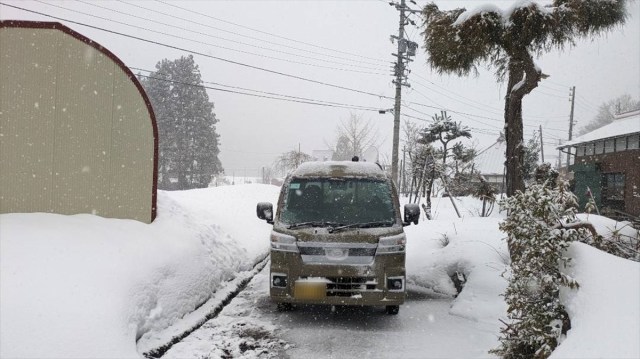



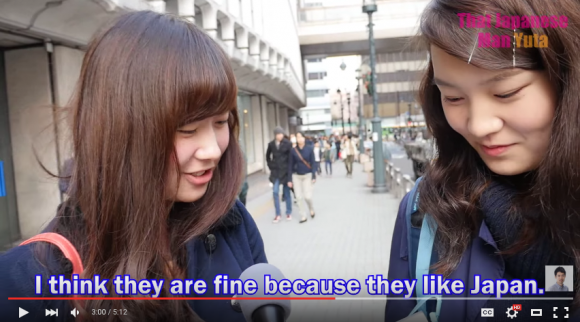

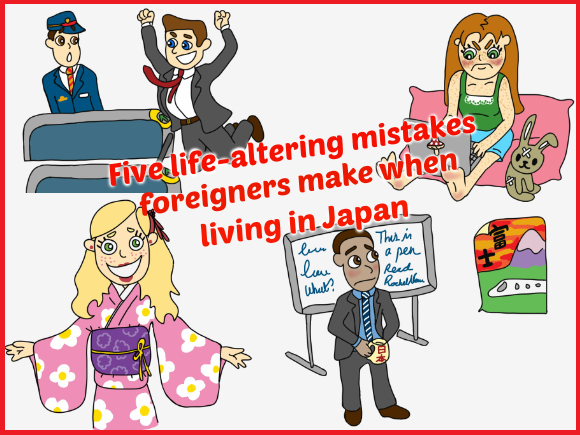

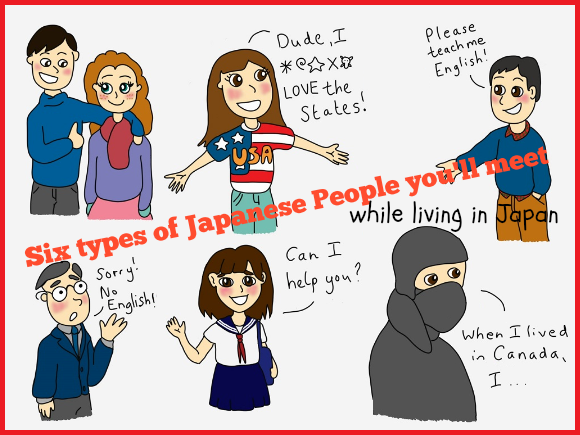
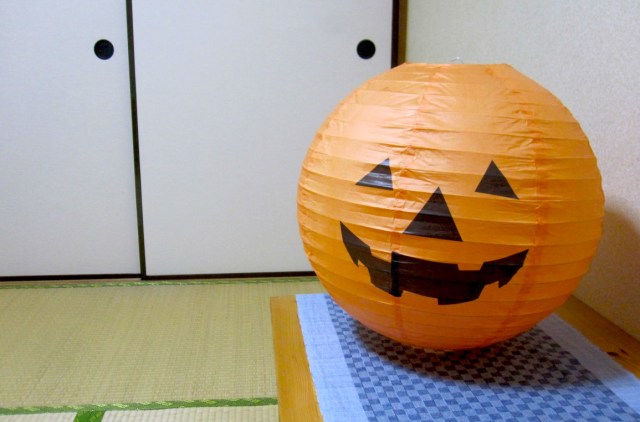


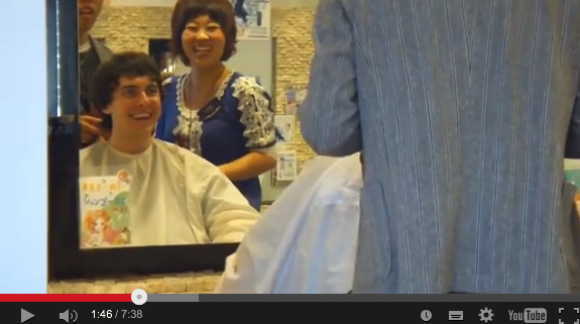
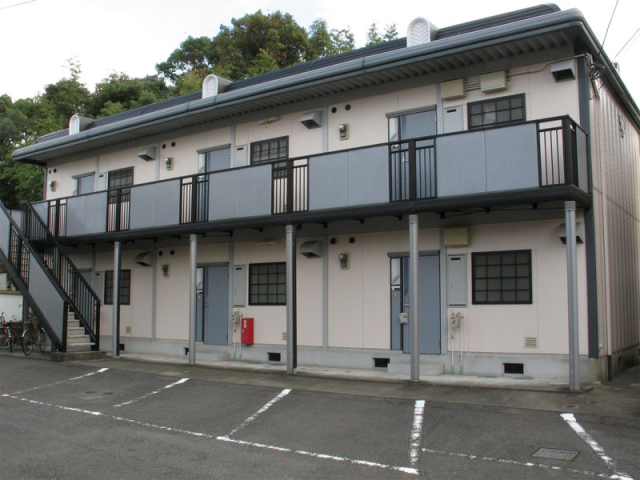

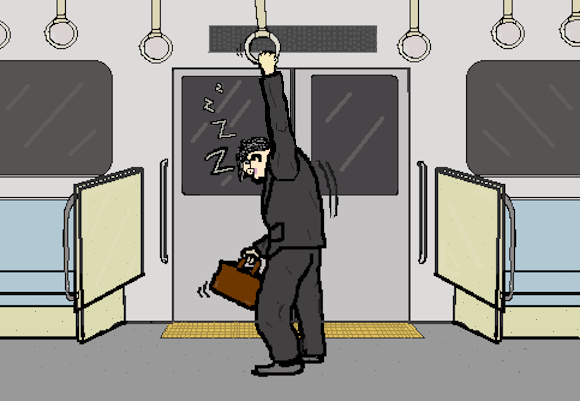

 Tokyo Station’s perfect breakfast spot might just be this izakaya Japanese-style pub
Tokyo Station’s perfect breakfast spot might just be this izakaya Japanese-style pub Foreign tourists in Japan will get free Shinkansen tickets to promote regional tourism
Foreign tourists in Japan will get free Shinkansen tickets to promote regional tourism The Yellow Lucky Bag from Village Vanguard is so bad it may damage Japan-US relations
The Yellow Lucky Bag from Village Vanguard is so bad it may damage Japan-US relations Elderly these days: older Tokyoites are getting very sticky fingers
Elderly these days: older Tokyoites are getting very sticky fingers Saitama is home to the best strawberries in Japan that you’ve probably never even heard of
Saitama is home to the best strawberries in Japan that you’ve probably never even heard of Telecommute with Pikachu! Over 250 Pokémon video chat backgrounds now free to download
Telecommute with Pikachu! Over 250 Pokémon video chat backgrounds now free to download Major Japanese hotel chain says reservations via overseas booking sites may not be valid
Major Japanese hotel chain says reservations via overseas booking sites may not be valid Samurai armor for pets turns your animal companions into adorable dogs and cats of war【Photos】
Samurai armor for pets turns your animal companions into adorable dogs and cats of war【Photos】 Take a trip to Japan’s Dododo Land, the most irritating place on Earth
Take a trip to Japan’s Dododo Land, the most irritating place on Earth Tokyo Disneyland’s Space Mountain is now closed
Tokyo Disneyland’s Space Mountain is now closed Starbucks Japan releases first-ever Hinamatsuri Girls’ Day Frappuccino
Starbucks Japan releases first-ever Hinamatsuri Girls’ Day Frappuccino Japanese restaurant chain serves Dragon Ball donuts and Senzu Beans this spring
Japanese restaurant chain serves Dragon Ball donuts and Senzu Beans this spring Highest Starbucks in Japan set to open this spring in the Tokyo sky
Highest Starbucks in Japan set to open this spring in the Tokyo sky Tokyo Skytree turns pink for the cherry blossom season
Tokyo Skytree turns pink for the cherry blossom season Japan Extreme Budget Travel! A trip from Tokyo to Izumo for just 30,000 yen [Part 1]
Japan Extreme Budget Travel! A trip from Tokyo to Izumo for just 30,000 yen [Part 1] Yakuzen ramen restaurant in Tokyo is very different to a yakuza ramen restaurant
Yakuzen ramen restaurant in Tokyo is very different to a yakuza ramen restaurant Japan has only one airport named after a samurai, so let’s check out Kochi Ryoma【Photos】
Japan has only one airport named after a samurai, so let’s check out Kochi Ryoma【Photos】 Japanese drugstore sells onigiri at pre-stupid era prices, but how do they compare to 7-Eleven?
Japanese drugstore sells onigiri at pre-stupid era prices, but how do they compare to 7-Eleven? Japan Extreme Budget Travel! A trip from Tokyo to Izumo for just 30,000 yen [Part 2]
Japan Extreme Budget Travel! A trip from Tokyo to Izumo for just 30,000 yen [Part 2] Adorable Totoro acorn key holders come with a special guest hidden inside[Photos]
Adorable Totoro acorn key holders come with a special guest hidden inside[Photos] Japan’s newest Shinkansen has no seats…or passengers [Video]
Japan’s newest Shinkansen has no seats…or passengers [Video] Starbucks Japan releases new sakura goods and drinkware for cherry blossom season 2026
Starbucks Japan releases new sakura goods and drinkware for cherry blossom season 2026 Foreigners accounting for over 80 percent of off-course skiers needing rescue in Japan’s Hokkaido
Foreigners accounting for over 80 percent of off-course skiers needing rescue in Japan’s Hokkaido Super-salty pizza sends six kids to the hospital in Japan, linguistics blamed
Super-salty pizza sends six kids to the hospital in Japan, linguistics blamed Starbucks Japan unveils new sakura Frappuccino for cherry blossom season 2026
Starbucks Japan unveils new sakura Frappuccino for cherry blossom season 2026 The 10 most annoying things foreign tourists do on Japanese trains, according to locals
The 10 most annoying things foreign tourists do on Japanese trains, according to locals Naruto and Converse team up for new line of shinobi sneakers[Photos]
Naruto and Converse team up for new line of shinobi sneakers[Photos] Is China’s don’t-go-to-Japan warning affecting the lines at a popular Tokyo gyukatsu restaurant?
Is China’s don’t-go-to-Japan warning affecting the lines at a popular Tokyo gyukatsu restaurant? Survey asks foreign tourists what bothered them in Japan, more than half gave same answer
Survey asks foreign tourists what bothered them in Japan, more than half gave same answer Japan’s human washing machines will go on sale to general public, demos to be held in Tokyo
Japan’s human washing machines will go on sale to general public, demos to be held in Tokyo Starbucks Japan releases new drinkware and goods for Valentine’s Day
Starbucks Japan releases new drinkware and goods for Valentine’s Day We deeply regret going into this tunnel on our walk in the mountains of Japan
We deeply regret going into this tunnel on our walk in the mountains of Japan Studio Ghibli releases Kodama forest spirits from Princess Mononoke to light up your home
Studio Ghibli releases Kodama forest spirits from Princess Mononoke to light up your home Put sesame oil in your coffee? Japanese maker says it’s the best way to start your day【Taste test】
Put sesame oil in your coffee? Japanese maker says it’s the best way to start your day【Taste test】 No more using real katana for tourism activities, Japan’s National Police Agency says
No more using real katana for tourism activities, Japan’s National Police Agency says Telecommute with Pikachu! Over 250 Pokémon video chat backgrounds now free to download
Telecommute with Pikachu! Over 250 Pokémon video chat backgrounds now free to download Major Japanese hotel chain says reservations via overseas booking sites may not be valid
Major Japanese hotel chain says reservations via overseas booking sites may not be valid Samurai armor for pets turns your animal companions into adorable dogs and cats of war【Photos】
Samurai armor for pets turns your animal companions into adorable dogs and cats of war【Photos】 Take a trip to Japan’s Dododo Land, the most irritating place on Earth
Take a trip to Japan’s Dododo Land, the most irritating place on Earth Tokyo Disneyland’s Space Mountain is now closed
Tokyo Disneyland’s Space Mountain is now closed 20th Century Fox to officially apologize for Napoleon Dynamite’s crappy Japanese title
20th Century Fox to officially apologize for Napoleon Dynamite’s crappy Japanese title Japan cherry blossom forecast update moves up sakura dates for many parts of the country
Japan cherry blossom forecast update moves up sakura dates for many parts of the country Witness the stunning hues of red and blue with Lake Biwa views at Mt. Hakodate’s Kokia Park
Witness the stunning hues of red and blue with Lake Biwa views at Mt. Hakodate’s Kokia Park Real-life Demon Slayer? A visit to the legendary split boulder of Haban Shrine【Photos】
Real-life Demon Slayer? A visit to the legendary split boulder of Haban Shrine【Photos】 The most popular Japanese baby names of the past 30 years, from Sakura to Shota
The most popular Japanese baby names of the past 30 years, from Sakura to Shota Family Mart ups its convenience store food game with special burger from beef bowl chain Matsuya
Family Mart ups its convenience store food game with special burger from beef bowl chain Matsuya How to speak Japanese like a gyaru【2024 edition】
How to speak Japanese like a gyaru【2024 edition】 Potama serves up epic rice balls like no other, and there’s only one store in Tokyo
Potama serves up epic rice balls like no other, and there’s only one store in Tokyo Death Spray from Japan causes buzz online for powerful ability to cut ties with bad energy
Death Spray from Japan causes buzz online for powerful ability to cut ties with bad energy